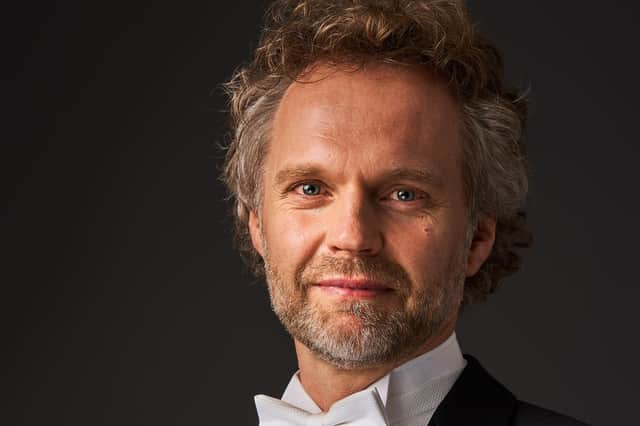Music review: RSNO, Glasgow Royal Concert Hall


It’s hard not to feel hard done by when, 24 hours after Scots football fans were wildly partying in packed trains and London bars, you find yourself being silently ushered every inch of the way to your concert hall seat (100 people spread over-generously around a 2,000-seater auditorium) as if on a prison visit. This was my first live orchestral concert in 15 months. It was a conflicting experience. Why these nonsensical extremes?
But let’s not rain on the musical parade. Here we had a chamber-sized RSNO, under chief conductor Thomas Søndergård, heralding their Glasgow comeback (they were in Perth the previous evening) with a programme perfect for the downsized occasion. Surely it wasn’t just the exuberant sheen of Poulenc, Françaix and Ibert that informed this choice. These three belong to that awkward squad of French 20th century composers who enjoyed poking fun at accepted authority. Was there a subliminal message here?
Advertisement
Hide AdAdvertisement
Hide AdIbert’s Divertissement burst into action like a riotous explosion of party poppers, before Søndergård and his team played calculated mischief with Ibert’s racy menagerie of schmalzy burlesque, mournful pathos, a quizzical scattering of parody and comic quotes, and a cartoonesque send-off resembling a two-fingered salute.
Françaix’s L’horloge de flore – essentially a soft-spun oboe concerto – was the concert’s central confection, and a tasty one. Principal oboist Adrian Wilson revelled in the airy simplicity of its melodies, pastorally-scented but spiced by the soloist’s fluid agility and the mercurial charm of the orchestration.
Finally the master of the perverse, and a performance of Poulenc’s Sinfonietta that captured the bristling unpredictability rocking its neat neoclassical frame. A fuller audience would have responded deafeningly. We did our best, but that vital element of the live dynamic is still being denied us, and it’s hard to see why.
A message from the Editor:
Thank you for reading this article. We're more reliant on your support than ever as the shift in consumer habits brought about by coronavirus impacts our advertisers.
If you haven't already, please consider supporting our trusted, fact-checked journalism by taking out a digital subscription at https://www.scotsman.com/subscriptions